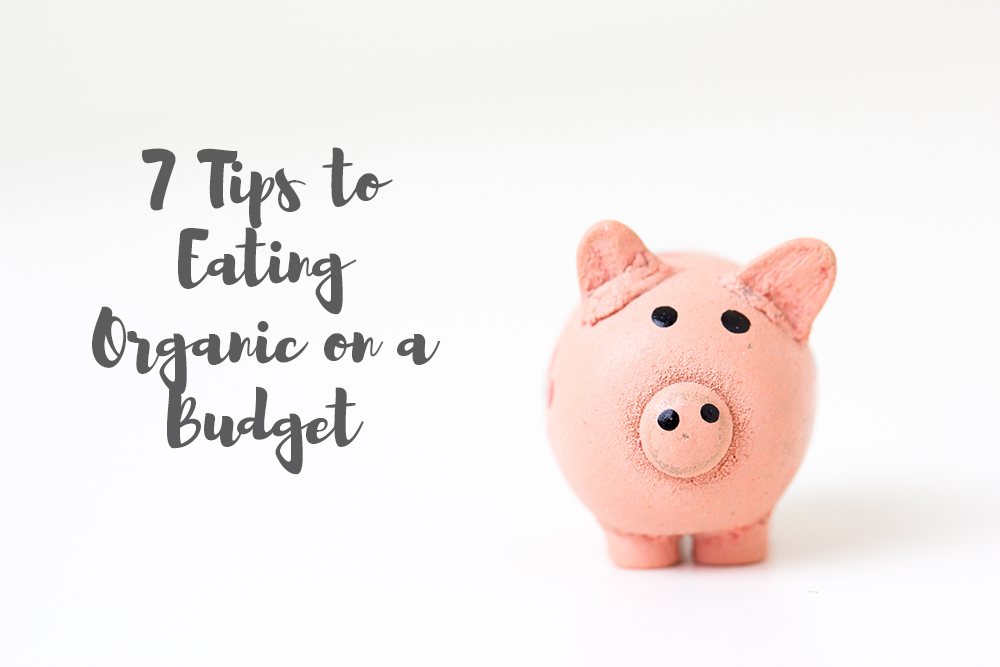This year’s Australian Organic Market Report found that price is still the number one barrier for consumers who do not purchase organic.
So, how do you enjoy the benefits of delicious organic food on a budget?
We’ve put together 7 great tips on ways to save and still enjoy organic produce on a budget.
1. Bulk buy
Buying in bulk is a great way to save money, no matter what you’re buying. Most dry foods and pantry staples can be purchased in bulk and often cost similar to their non-organic equivalents. Items such as dried pasta, tinned fruit and veggies, flour, sugar and other cupboard essentials can be purchased in bulk, have a longer expiration date and are great for quick and affordable meals.
2. Refill
Some specialist organic stores and supermarkets offer refills for pantry staples which are priced more competitively gram for gram (or ml for ml!) Not only is this a great way to bulk buy organic produce, it also helps you to do your bit for the environment. Refill stores work by consumers bringing their own containers, minimising the need for disposable packaging.
3. Eat seasonal & local
We’re so spoilt with our selection of fresh produce in our supermarkets that we forget how far some of that produce has travelled to get to the store. Fruit and veggies that aren’t in season are sourced from international markets, often travelling for days or even weeks to arrive in our local supermarkets, enduring all kinds of synthetic chemicals, added hormones and changing temperatures along the way. By eating organics seasonally and locally, you’ll not only be eating fresher, more nutrient rich produce, but also reducing your carbon footprint as your fruit and veggies travelled a much shorter distance to get to your table. You’ll also be supporting your local producers and local community in the process.
4. Reduce food waste
More than 75% of Australians admit to being ‘food wasters’, with over 56% confessing to throwing out food at least once every week. This has lead to Australians wasting around 3.1 million tonnes of food each year – think about how much that would have cost! Food waste is a waste for the environment and a waste for your wallets. Simple meal planning can dramatically reduce food waste by stopping you from buying too much food and letting it expire. Correctly storing your food and freezing food that you won’t use will cut back on food spoiling and being wasted, saving you more money in the long run.
5. Cook at home
Eating out may seem like the easier, most convenient way to get your meals, but it may also be eating up your bank account. Convenience foods (fast foods especially) may seem cheap at the time, but if you add up the cost over a month or a year you may be surprised. Eating at home is a much cheaper, healthier option and doesn’t have to been time-consuming. Planning your meals ahead, meal prepping and freezing leftovers from bulk meals saves time, money and energy – especially after a long day at work. If you’re looking for some organic inspiration, see our list of organic recipes here.
6. Shop around
Not all organic brands are priced equally. Many supermarkets have launched their own-brand certified organic ranges, priced more competitively to encourage consumers into an organic lifestyle. Even the more budget supermarkets such as Aldi have their own range of certified organic products, just look out for the organic certification mark.
7. Grow your own
You don’t need acres of land to grow your own organic fruit and veggies, just a simple plant pot or window-box will do. You’ll be surprised about just how much you can grow in such a small space. From herbs, edible flowers, small fruits and vegetables, growing your own organic produce will save you money in the long run and is incredibly rewarding.
With these budget-friendly tips, there really is no excuse not to buy organic!

